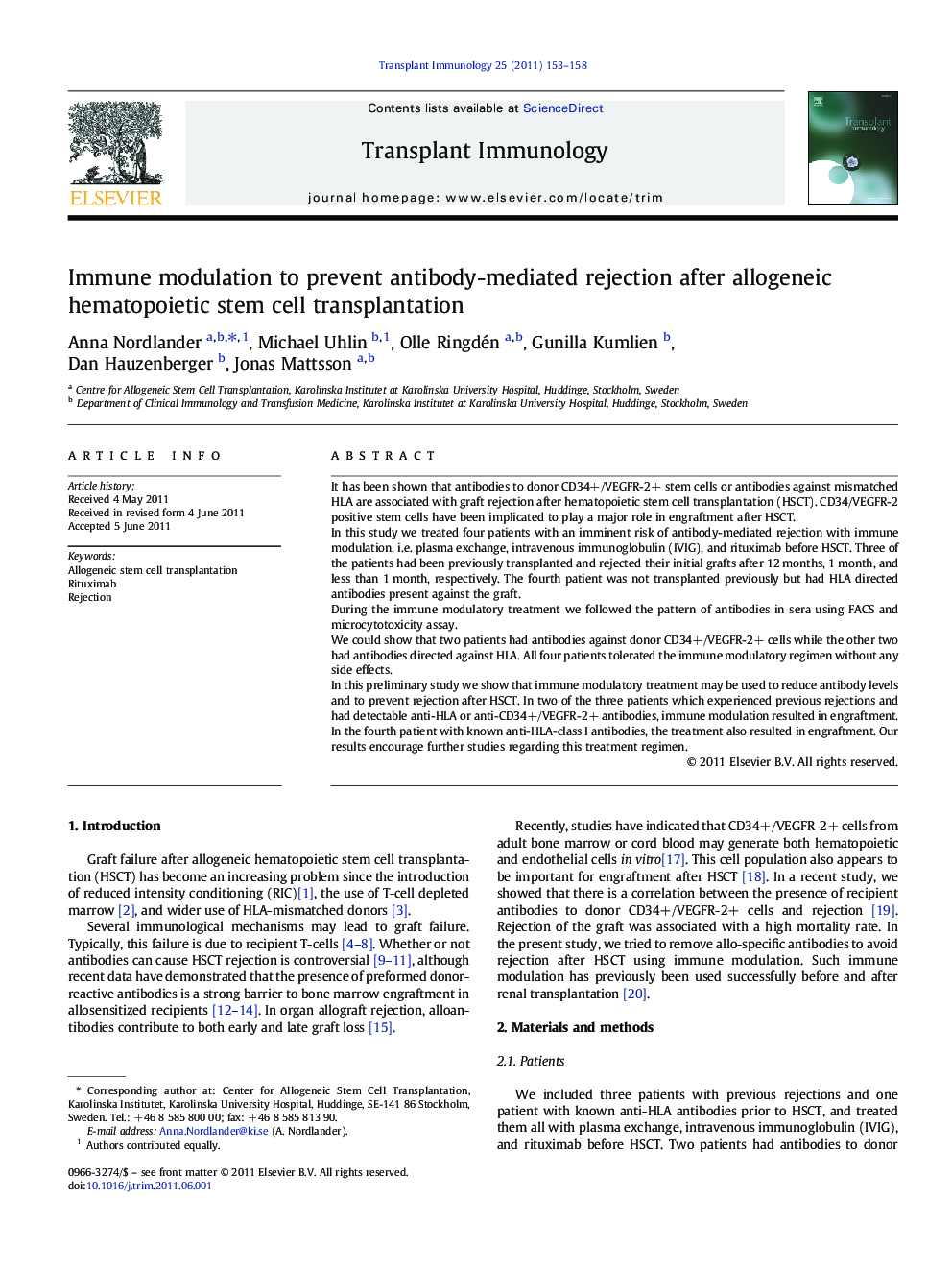| Article ID | Journal | Published Year | Pages | File Type |
|---|---|---|---|---|
| 3392278 | Transplant Immunology | 2011 | 6 Pages |
It has been shown that antibodies to donor CD34+/VEGFR-2+ stem cells or antibodies against mismatched HLA are associated with graft rejection after hematopoietic stem cell transplantation (HSCT). CD34/VEGFR-2 positive stem cells have been implicated to play a major role in engraftment after HSCT.In this study we treated four patients with an imminent risk of antibody-mediated rejection with immune modulation, i.e. plasma exchange, intravenous immunoglobulin (IVIG), and rituximab before HSCT. Three of the patients had been previously transplanted and rejected their initial grafts after 12 months, 1 month, and less than 1 month, respectively. The fourth patient was not transplanted previously but had HLA directed antibodies present against the graft.During the immune modulatory treatment we followed the pattern of antibodies in sera using FACS and microcytotoxicity assay.We could show that two patients had antibodies against donor CD34+/VEGFR-2+ cells while the other two had antibodies directed against HLA. All four patients tolerated the immune modulatory regimen without any side effects.In this preliminary study we show that immune modulatory treatment may be used to reduce antibody levels and to prevent rejection after HSCT. In two of the three patients which experienced previous rejections and had detectable anti-HLA or anti-CD34+/VEGFR-2+ antibodies, immune modulation resulted in engraftment. In the fourth patient with known anti-HLA-class I antibodies, the treatment also resulted in engraftment. Our results encourage further studies regarding this treatment regimen.
► In this study we treat HSCT patients with immune modulation to prevent rejection. ► The modulation consists of plasmaphoresis, IVIG and Rituximab. ► 3 out of 4 patients successfully engrafted after treatment. ► No side effects could be observed
